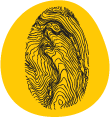
Landscape Quality Assessment: from place to utopia
Landscape quality assessment has been the concern of many academics and practitioners for decades. However, defining exactly what landscape of good or bad quality is remains a challenging task despite steady progress induced by the implementation of the European Landscape Convention in several countries.
People, including experts, may express their preferences either on an affective or a more reflexive way. But assessing landscape out of a specific framework is a difficult task for experts due to the multiple functions that landscapes perform. The task of upscaling contextual advice regarding a local landscape to a regional landscape has as well to face problems that are pointed in the paper such as people analysing a landscape as a residence place when it looks familiar.
In the paper, we focus on the issues of upscaling and downscaling. We reanalyse three recent or current research projects made in the Laplec research group which aimed different purpose using contrasting methodologies. The first project (Van Rompaey et al., 2011) aimed to assess the landscape attractiveness of landscape among Belgians. Based on a photo-questionnaire survey (n =1543), the project targeted uspscaling the result of the survey to the Belgian countryside. The second used in-depth interviews of people (n = 46) to point the visible and invisible factors that lead to a landscape assessment (Vanderheyden and Schmitz, 2012). The third analysed a two stages survey of 41 Romanian and Belgian experts regarding 52 landscape quality indicators. In this case, we collected ideal types far away from one reified landscape (Schmitz et al. 2013).
We compare the learning of the three research projects, which used different research designs, allowing us to point out biases, such as the use of photography (people assessing the quality of the photograph instead of landscape) while field assessment encompass other senses ; or the variability in the use of Likert items.
The lessons are both methodological and conceptual. Depending of the scale of analysis and the links of the people with the landscape, we may identify, including by the experts, landscapes of action or projection, landscapes of contemplation and utopian landscapes. The deconstruction of the results leads to acknowledging that aggregating several experts’ or people’s views on landscape may lead to sum up things that should carefully be analysed separately (Larrère and Larrère, 2009). Moreover, we will point the link between the scale of analysis and the way of viewing landscapes, varying between local people, external people and experts. In this paper, we suggest ways to adapt methodological design in order to take into account some of the problems pointed out.
Larrère, C. and Larrère, R. 2009. Du bon usage de la nature pour une philosophie de l'environnement, Paris, Flammarion.
Schmitz S., Vanderheyden V., Teleuca A., and Patru-Stupariu I., 2013. Multiple viewpoints on Landscape quality assessment: some evidences from a survey in Wallonia and Romania. 21th Annual Colloquium of the International Geographical Union Commission on the Sustainability of Rural System. 29th July - 4th August 2013, Nagoya, Japan.
Van Rompaey, A., Schmitz, S., Kesteloot, C., Peeters, K. ,Moens, B., Van Hemelrijk H., Vanderheyden V. , Loopmans M. and Vanden Broucke S., 2011. Landscape capacity and social attitudes towards wind energy projects in Belgium. Final Report. Brussels : Belgian Science Policy. 84p. (Research Programme Science for a Sustainable Development)
Vanderheyden and Schmitz, 2012. Belgian Rural Ordinary Landscapes Seen By Belgians, in Van Der Vaart, Jacob; Palang, Hannes (Eds.) Reflection on Landscape Change: The European Perspective P. 88-89.
